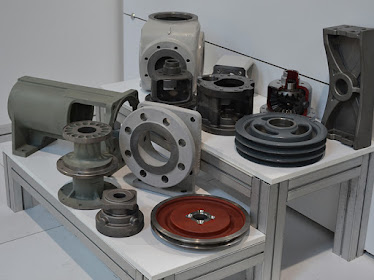Permanent mold casting Aluminum is a process in which with the use of a single reusable mold there is the production of a large number of castings. The casting process simply includes pouring molten metal into a mold where it cools and solidifies. The mold is then opened, the casting removed, and the mold is then reused. From a high-temperature metallic material, such as cast iron or hot work die steel the mold is made, which can withstand the repeated heating and cooling involved with large volume production.
When compared with metal solidified using sand casting, which is another popular casting process, the process of permanent mold casting produces metal with better dimensional tolerance, superior surface finish, and higher and more uniform mechanical properties. Permanent mold castings have relatively ductility, high strength, and toughness owing to the mold walls that rapidly remove heat from the liquid metal. This then generates a fast solidification rate which in the cast metal produces a fine grain structure.
The high cost of the reusable mold is the disadvantage of Permanent Mold Aluminum Casting, and the casting process is usually viable only when high-volume production can offset the cost. The casting of aluminum, titanium, and steel ingots is the most common application of permanent mold casting in the aerospace industries, which are then processed by working operations into aerospace structural components.
Permanent mold casting is a metal shape casting process that is very much similar to sand casting, but this process makes use of permanent, high thermal conductivity molds.
In permanent mold casting processes, molds are used over and over again. The most widely practiced of these methods is often referred to as die casting. Dies are extremely important manufacturing tools that are prepared from hard, tough alloy steels that enable components made of metals, polymers, and ceramics to be shaped and replicated.
They not only are used as molds to contain molten metals and polymers, but in mechanical forming operations like extrusion, wire drawing, sheet metal forming, and the pressing of metal and ceramic powders it finds extensive applications.
Die casting is limited predominantly to the low-melting-point metals like zinc and aluminum alloys as the process chamber and die steels cannot withstand lengthy elevated-temperature contact with molten metals when used by Permanent Mold Casting Aluminum Manufacturer.
Follow us on Facebook






No comments:
Post a Comment